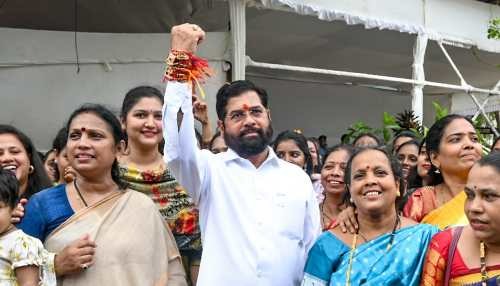Ajit Pawar, the finance minister of Maharashtra, unveiled the “Ladki Behen” program in this year’s state budget, and it has since been a hot topic of conversation across the state, particularly among women. Since its start in August 2024, the project has garnered over 15 million registrations and pays qualified women a monthly dividend of ₹1,500. But in spite of its increasing appeal, the plan has been the target of smear operations spearheaded by the opposition in an effort to sabotage its success before the next elections.
Critics first rejected the “Ladki Behen” idea as a gimmick, despite it being announced as a significant social initiative focused on women. Nevertheless, women from all around Maharashtra kept signing up in droves, demonstrating their faith in the project. Opponents changed their approach as the number of recipients increased, concentrating on the scheme’s financial sustainability. They expressed worries about the possible effects on Maharashtra’s financial stability by accusing the state administration of taking out large weekly loans to finance the scheme.
Ajit Pawar denied these claims, stating that ₹46,000 crore had already been set out for the program in the state budget. However, opposition parties persisted in spreading rumors that the initiative was having a detrimental impact on state growth and that contractors were not being paid. The plan’s appeal to women persisted in spite of these allegations.
Attempts by the Opposition to Discredit the Plan
Critics turned to moral charges when efforts to undermine the plan using financial justifications failed, claiming that the government was “buying” women’s votes by providing ₹1,500 monthly payments. Videos of women allegedly requesting less expensive LPG cylinders in lieu of payment were widely shared on social media. Nevertheless, women’s trust in the program and the government that supported it was only bolstered by the money being deposited into recipients’ accounts.
Opposition leaders allegedly tampered with the registration process in a more technical effort to sabotage the plan. Others purposefully filled out papers improperly to cause delays and confusion, while others set up illegal camps with deceptive banners. In the state house, BJP MLA Ram Kadam brought up similar concerns and said that opponents were slowing down the system by submitting erroneous data to its webpage. During a news conference, Home Minister Devendra Fadnavis addressed these worries and disclosed that opponents were sabotaging the program using technology. To guarantee that women would not be excluded from receiving assistance, the state administration responded by starting to accept offline applications.
False information and inciting fear
Over 15 million women were able to sign up for the program in spite of many obstacles, and the first two ₹1,500 payments were made available. Opponents adopted a new strategy in which they disseminated misleading material, advising recipients to take their money right away and asserting that the authorities would recover the money. These anxieties were spread by senior Maha Vikas Aghadi coalition leaders.
Chief Minister Eknath Shinde and Deputy Chief Ministers Devendra Fadnavis and Ajit Pawar publicly reassured the public that the money was a “gift” to the ladies of Maharashtra and would not be refunded in order to refute this narrative. The leaders underlined the scheme’s significance for women’s welfare and financial security while restating the government’s commitment to it.
The opposition has stepped up its attempts to undermine the program as election season draws near. Online rumors have been spreading that women who have enrolled for the program would get a ₹5,500 bonus, even though the government has not made any such declaration. Ahead of the assembly elections on November 20, the opposition further asserted that the Election Commission’s code of conduct was the reason the plan had been halted. Eknath Shinde, however, said that the program was only temporarily suspended because of election restrictions and will resume after the elections, with money still being transferred into recipients’ accounts.
Preventive Actions by the State
The Maha Yuti administration made advance payments in anticipation of the possible effects of election-related delays in order to guarantee that women would continue to receive their benefits during the election period. The government’s intention to keep its pledges to female voters was shown by this action. In the meanwhile, if the opposition is elected to power, they have vowed to scrap the plan. Uddhav Thackeray, the former chief minister, has gone so far as to say that his party would stop the program and sue the Maha Yuti leadership if they win.
The “Ladki Behen” program continues to be a major political issue in Maharashtra as the election date draws near. The initiative is still quite popular with women, who see it as a helpful support system, despite constant criticism.

